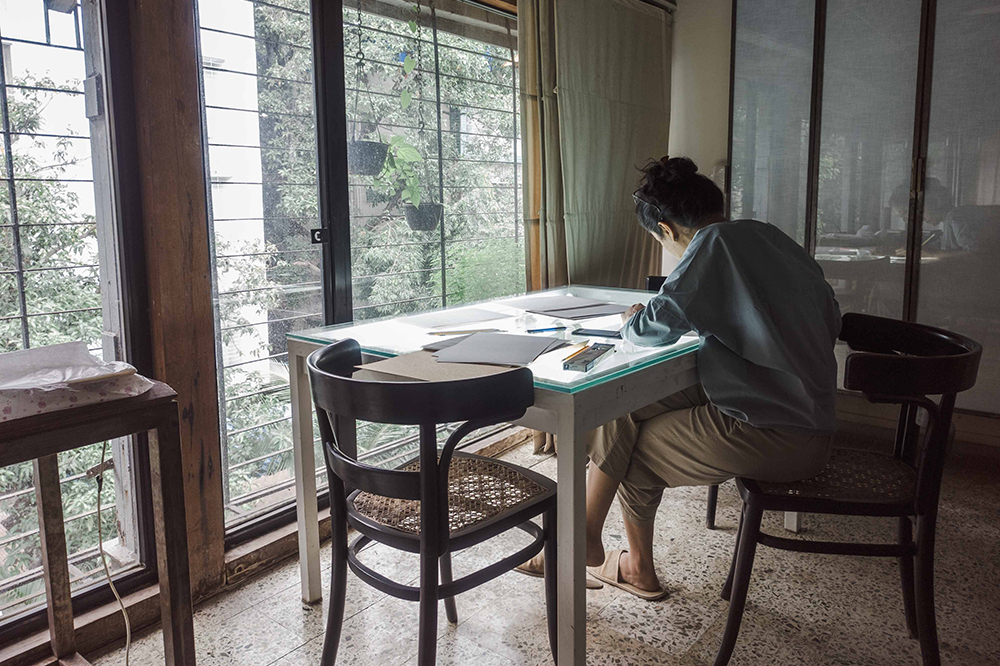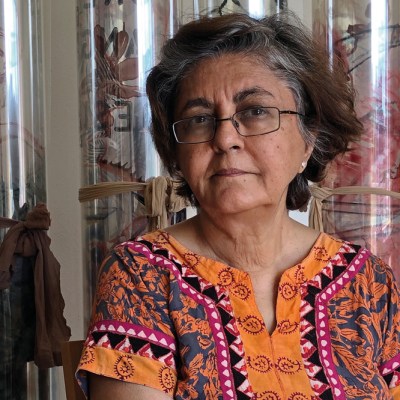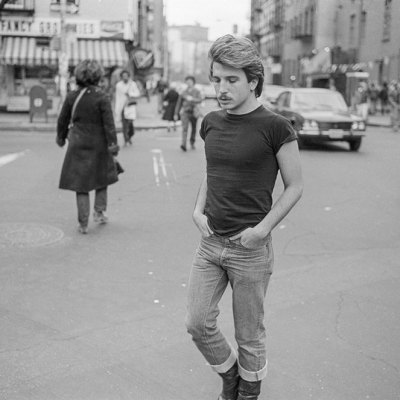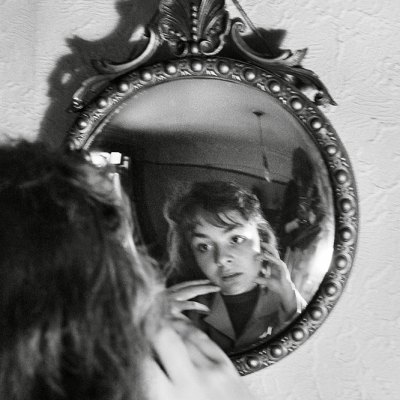Since the 1990s, the Mumbai-based artist Shilpa Gupta has asked audiences to see the world from the vantage point of the oppressed, by means of large-scale sculptural installations that frequently involve participatory elements such as sound and interactive computer programmes. A case in point is Gupta’s acclaimed installation of 2017–18, ‘For, In Your Tongue, I Cannot Fit’, which comprises 100 fragments of poetry, composed between the eighth century and the present by writers across the globe who have been incarcerated; the texts are speared on waist-high metal stands while the poems are also broadcast on an audio loop through reversed-wired microphones, suspended from the ceiling. The work is currently at both Dallas Contemporary and at the Barbican, London, as part of the solo exhibition ‘Sun at Night’.
Where is your studio?
My studio is in an old building from the last century in a suburb called Bandra in Mumbai. It sits at the end of a narrow lane, just off the main street, very close to the railway station. The train tracks nearly touch the compound wall. There is a place you can stand where, if you were to stretch your hands out, you could clap them against someone leaning from the train.
What do you like most about the space?
I spend most of my time in what used to be the veranda of a home on the upper floor of the building, with a sloping wooden roof. It has the original terrazzo floor tiles. The veranda, now enclosed, has glass windows and across is a building which has many trees – I cannot say how grateful I am to them for the shade and calm they offer. Occasionally, one spots small birds with unusual colours, which brings much delight to my little son and me.
Shilpa Gupta. Courtesy the artist

What frustrates you about it?
I would love to have more and larger windows to bring more of a natural breeze in the studio. It would also be very useful for the smells of the various materials being used in the studio to drift away!
Do you work alone?
There are days I stay in the veranda space all day working by myself. When there are intense deadlines, of which there have been quite a few this year, I shift my desk and sit with the rest of the team all day. Once everyone leaves, I love spending an hour or two by myself in the late evening.
How messy is your studio?
It depends. If in the middle of a show, then yes, it becomes messy as there is a lot of material for sampling and testing around. Once works leave, everything starts to find a place in the store. I am constantly organising material.
For, in your tongue, I cannot fit (2017–18), Shilpa Gupta. Commissioned by YARAT Contemporary Art Space and Edinburgh Art Festival . Photo: Pat Verbruggen

What does it smell like?
Whichever material was last used. Sometimes in the afternoon, the smell of spicy food lingers on after lunch.
What’s the weirdest object in there?
There are a few! At the moment there are empty bottles of Phensedyl which I brought back from the border area between India and Bangladesh. Phensedyl is a cough syrup, often confiscated since it is a popular intoxicant – it’s banned in Bangladesh, but there are several factories in the border states on the Indian side. I have made drawings with it.
Which artistic tool could you least do without?
Besides the laptop, there is a large glass table-cum-light box in my studio. A lot of the sampling, cutting, slicing, sticking takes place here.
Installation view of For, In Your Tongue, I Cannot Fit at Dallas Contemporary in 2021. Photo Kevin Todora
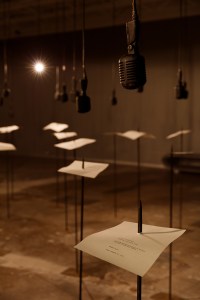
Do you pin up images of other artists’ works?
I don’t have many free walls to pin up works. But even if I did, I would keep them empty. The main studio wall is left free for working and the other ones have a few samples pinned up to test their reaction to light.
Do you ever sleep in your studio?
Rarely. My home is close by and if I sleep in the middle of the day, the day is ruined. So I rarely lie down in the studio.
What do you usually wear while you’re working?
Regular, comfortable loose cottons.
‘Shilpa Gupta: Sun at Night’ is at the Barbican, London, until 6 February 2022. ‘Shilpa Gupta: For, In Your Tongue, I Cannot Fit’ is at Dallas Contemporary until 13 February 2022.
